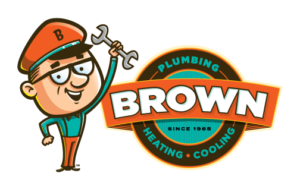It’s amazing how many things a homeowner must keep in mind. When you are a renter, maintenance becomes a non-issue – the landlord will take care of it, right? Well, hopefully, they’ll take care of it. At any rate, owning a home means taking full control over handling maintenance issues, including your heating and cooling system.
HVAC (heating, ventilation and air conditioning, for those who are new to the terminology) can eat up a large part of a home’s energy budget while keeping your home comfortable. It’s a major home system, but one that is often in the realm of, “Out-of-sight, out-of-mind.” Don’t let the hidden nature of HVAC fool you, though. You need to be aware of your HVAC system’s components, and maintenance needs to keep your home comfortable and avoid major repair or replacement costs. Here are the basics every owner should know.
What Type of System Is In Your Home
The number one thing you should know about home HVAC is what kind of system you have. Do you have central A/C, which consists of both a large indoor and outdoor unit? Or maybe you have a mini-split system without ductwork. What type of heater do you have: forced air or radiant? If you have forced air, are you using a heat pump or a furnace? Electric or gas? Is your system zoned?
It’s hard to believe, but these aren’t even all the choices you have when it comes to heating and cooling options! Knowing the type of system you have is critical to making decisions about maintenance and improvements in the future. If you aren’t sure what you have on your hands, it might be time to have a professional come out and do an inspection.
How to Maintain Your Specific System
Once you know what type of HVAC system is in your home, it’s time to talk maintenance. Every system has its requirements, but one thing is sure – proper maintenance goes a long way towards keeping your energy costs low and your repair costs even lower.
Among the most basic things you can do to prevent problems in a forced air system is change your air filter on a regular basis. A clogged filter can cause a host of HVAC and air quality problems in your home, so we recommend checking the filter at least once a month. If it is dirty, it’s time for a replacement.
Another essential preventative task: Just taking a good look at your HVAC components. How does the outdoor portion look? Is it free of debris or anything that could cause clogging? Does anything look or smell off? Do your vents inside look particularly dirty? Doing a system wide check on occasion will help you become familiar with your system while alerting you to any changes quickly.
We also recommend scheduling bi-annual maintenance checks. The spring check will ensure that your air conditioner is in good running order before the long, hot summer begins, while the fall check will leave you with a working heater.
The Role HVAC Plays in Home Air Quality
It’s not all heating, ventilation, and air conditioning – HVAC plays a significant role in keeping the air in your home healthy as well. Indoor air quality can be twice as polluted as outdoor air, thanks to modern construction techniques that keep our homes tightly sealed. That mean polluted air doesn’t always have a chance to escape the way it did in the good old days.
Some of the most common side effects of indoor air quality issues include respiratory distress (such as a stuffy nose or coughing), itchy eyes, or flu-like symptoms. For those who suffer from allergies, polluted air can be a nightmare. For people with compromised immune systems or those who are particularly sensitive to certain chemicals, poor indoor air quality can pose significant health problems.
Knowing that HVAC is so vital to keeping your air clean, you need to check that your ventilation systems are in good condition and that you have the best air filter possible for your forced-air HVAC system. These two steps will have everyone breathing better in no time.
Warning Signs of a Major Problem
Anytime you notice an odd smell, strange noise, or sudden changes in your HVAC system’s behavior; it’s likely the sign of a maintenance issue. There can be many reasons why all of the above symptoms occur, but none of them are things that should be ignored for extended periods of time.
Our blog has some posts on self-diagnosing certain issues, including heater problems, air conditioning smells, and whether or not your system requires replacement equipment. We try to provide a lot of information for homeowners on our blog, so it’s a great starting point if you have any questions about HVAC issues.
Practical Improvements That Can Save Money
Does your HVAC system have a programmable thermostat? How efficient are your HVAC components? Does your energy bill keep rising? Keeping an eye on maintaining your home environment also means paying attention to industry changes that could be wise long-term investments.
For example, a smart thermostat can learn the patterns of your family – when they are home when they are at work, and when they like the house to be at a certain temperature. This means the thermostat can automatically perfect your environment in a way that is more efficient than household members playing with the thermostat controls. While the initial investment in this type of thermostat is high, the cost savings in monthly energy usage may make the investment worthwhile.
The Age of Your HVAC System
Along with keeping an eye on new advancements in HVAC technology, it’s a good idea to know the exact age of your heating and air conditioning components. While routine maintenance makes your system last longer, most components do have an average life span that you should keep in mind – usually, around 10-20 years, depending on the part. We have air conditioning systems that we routinely maintain that are into their 40th year now, which shows what great care can do!
Even if your equipment runs well beyond its lifetime, planning for replacements is useful for budgeting purposes. Plus, older units can become less energy efficient, which means that while they may work, a replacement could end up saving you some money on utilities.


